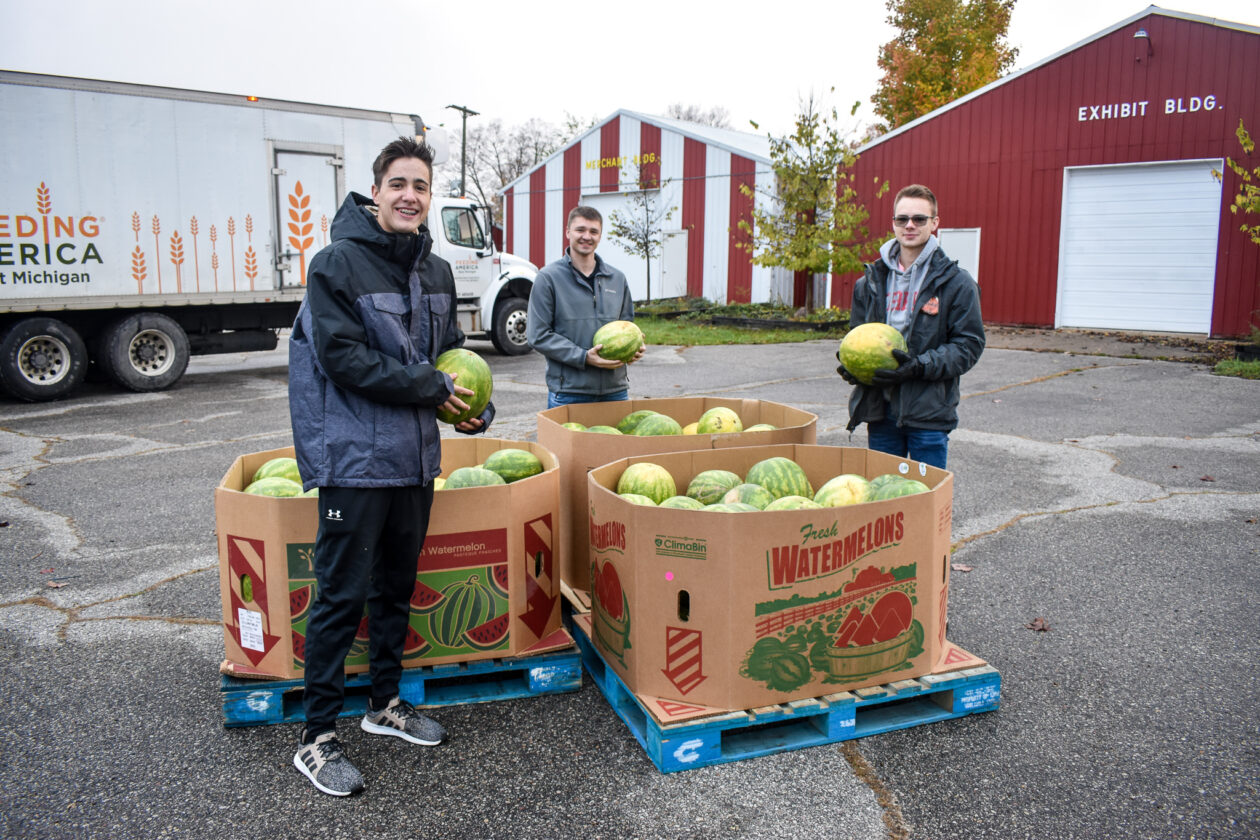Lois, a retired senior, has held a variety of jobs in her life — including cook, dishwasher, waitress, golf course builder and security guard.
“You might as well call me a jack of all trades,” she said.
Today, she can no longer work but loves being able to help her daughter with her small business. They refurbish vintage decor such as candlesticks to sell at nearby markets.
“We started during the pandemic and just kept at it. We’re slowly building it up,” she said.

Like many retirees who live on fixed incomes, it’s challenging at times for Lois to make ends meet. As a diabetic, she appreciates all the fruits and vegetables she can get. At the Mobile Pantries she attends near her home, she’s able to stock up on plenty. The fresh produce and other food she receives help her cook healthy meals for herself and also for her 86-year-old mother, Donna, who attends with her and is also diabetic.
“It helps quite a bit because, by the time I pay my bills, I don’t have enough left to pay for food,” Lois said. “I enjoy seeing the variety of what they give.”
Lois and Donna both don’t receive benefits from the Supplemental Nutrition Assistance Program (SNAP), partially because they lack access to the technology and internet needed to regularly apply. Mobile Food Pantries help fill their plates by providing them with plenty of groceries.
For many neighbors across Feeding America West Michigan’s 40-county service area, this rings true. According to the U.S. Department of Agriculture, only 51 percent of Michigan seniors eligible for SNAP are enrolled, compared to 90 percent of all eligible people. This could be for a variety of reasons such as technology access or stigma about receiving government support.

For other neighbors like Darnell, a disabled senior who does receive SNAP benefits, they aren’t always enough. He used to hold factory and forestry jobs but was forced into early retirement when his back was no longer able to support this kind of work — “I have trouble getting around and bending over,” he said.
Since SNAP benefits alone would leave gaps in his diet, Darnell also uses Mobile Pantries to fill his plate and make room in his budget for other expenses, such as rent, particularly because he has not yet been approved to receive disability benefits.
Darnell has two dogs and loves fishing and spending time with his grandchildren.
“I like to be outside, but it’s kind of hard when you have a hard time moving around,” he said.
SNAP provides many benefits for neighbors and communities, but it isn’t perfect, and the charitable food sector has an important role to play in the fight against hunger. Thanks to organizations like Meijer and the Mecosta County Community Foundation, Feeding America West Michigan is able to provide Mobile Food Pantries to neighbors in need across our service area. Their help means neighbors like Lois, Donna and Darnell can access the healthy food they need, no matter the challenges they face.
Story written by Communication and Marketing Specialist Juliana Ludema


